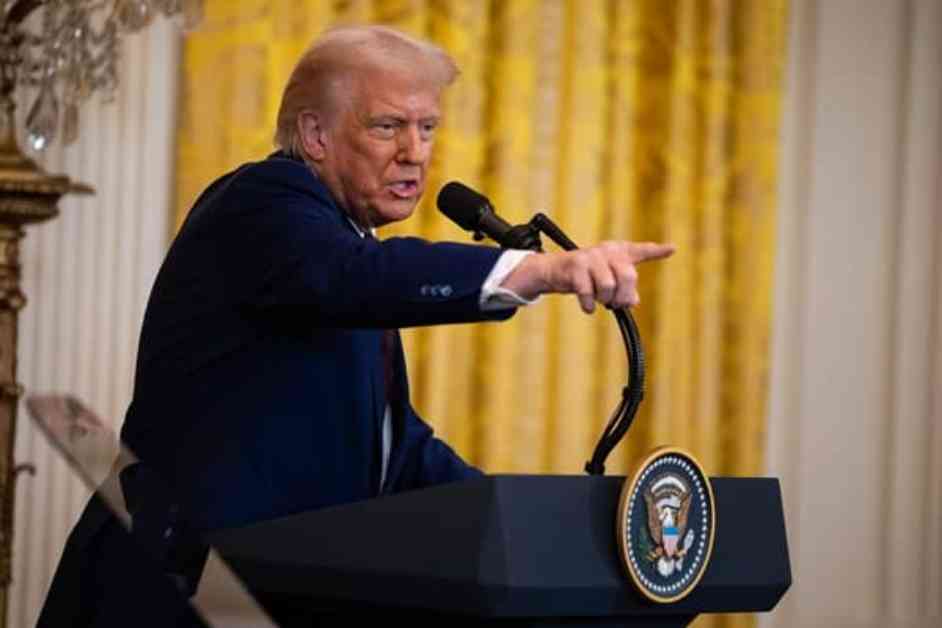The UK is facing a potential threat of significant import tariffs up to 24%, as warned by Consultancy Capital Economics. This looming concern arises from the possibility of US President Donald Trump’s administration adding Value-Added Tax (VAT) rates on top of existing tariffs. The White House has expressed intentions to scrutinize how countries apply taxes that could be perceived as unfair, discriminatory, or extraterritorial towards American businesses, workers, and consumers.
Paul Ashworth, the chief North America economist at Capital Economics, shed light on the implications of this potential move. He emphasized that while most people view VAT as a non-discriminatory tax, as it also applies to domestically-produced goods, the Trump administration has been advocating a different perspective. According to Ashworth, Peter Navarro, a key advisor to the president, has been asserting that the US’s lower average sales tax at the state level puts American businesses at a disadvantage, framing it as a form of discriminatory tariff.
If the US were to impose reciprocal tariffs combining VAT rates with Most Favored Nation (MFN) tariff rates, the UK would find itself among the countries most significantly impacted, with tariffs potentially reaching 24%. India and Brazil would face even higher tariffs at 29% and 28%, respectively, followed by the EU (25%), Mexico (23%), and Canada (19%). On the flip side, Singapore (9%), Taiwan (12%), and Korea (13%) are projected to be the “winners” in this scenario, with lower tariff rates.
The implementation of such tariffs would lead to a substantial increase in the average effective tariff rate on all US imports—from the current less than 3% to approximately 20%. Consequently, US consumer prices could rise by about 2%, resulting in a temporary inflation rebound to 4% later in the year.
Expert Insights and Economic Impact
Offering expert insights, Ashworth’s analysis underscores the potential ripple effects of the proposed tariffs on the global economy. The intricate web of international trade relations and the interconnectedness of markets could amplify the repercussions of such measures. As tensions escalate and trade policies shift, businesses worldwide are bracing themselves for the economic fallout that could ensue.
Moreover, the looming threat of increased tariffs poses a challenge for policymakers, who must navigate a delicate balance between protecting domestic industries and fostering international trade relations. The delicate dance of diplomacy and economic strategy in the face of such uncertainties requires a nuanced approach to mitigate risks and safeguard against potential disruptions in the global marketplace.
Implications for Consumer Prices and Inflation
The projected rise in consumer prices due to the potential tariffs raises concerns about the impact on everyday Americans. As inflation creeps up, households may face added financial pressure, leading to shifts in spending patterns and consumption habits. The broader economic landscape could see fluctuations in demand, investment, and overall growth, as businesses and consumers alike adjust to the new cost dynamics.
In navigating these challenges, policymakers must strike a delicate balance between protecting domestic industries and fostering international trade relations. The intricate interplay of economic forces at play underscores the need for a strategic and nuanced approach to address the complexities of the global marketplace. As the world watches closely, the outcomes of these decisions could shape the trajectory of the global economy in the months and years ahead.












